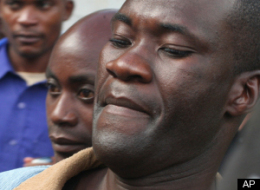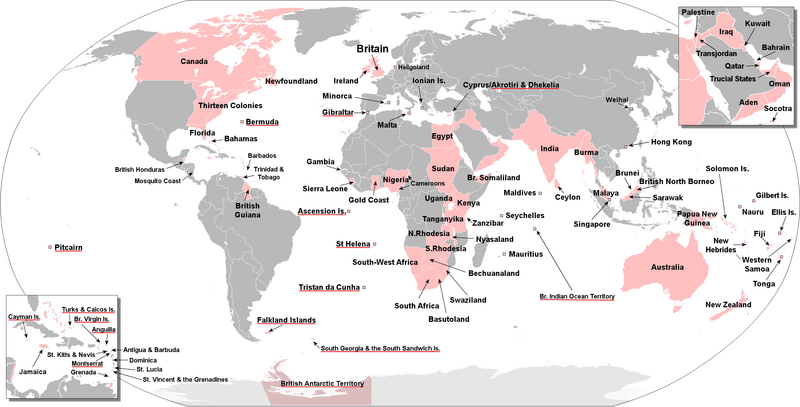This conviction, while horrendous in its cruelty and homophobia, was not an isolated incident; in fact, back in February, the Guardian Online reported on the Malawi police's operation against gay and lesbian people, parallelling similar campaigns in other parts of Anglophone East and southern Africa, including Uganda, where the parliament is debating a bill that would impose life imprisonment on anyone convicted of having same-sexual relations, and which had earlier broached the death penalty for gay people; and Kenya, where gay people have been arrested for participating in a wedding ceremony. Back in Malawi, as the Guardian UK notes
A 21-year-old man was recently sentenced to two months' community service for putting up pro-gay rights posters, and a senior minister expelled a woman from her town even after a court acquitted her on charges of having sex with two girls.
The sentence the two men in Malawi face is horrifying, as is the vitriol directed at them by many members of the public and the people affiliated with various "Christian" churches. In the case of Uganda, in particular, there has been much discussion and criticism of the role of fundamentalist US Christian churches and missionaries, who have been actively fomenting anti-gay rhetoric and legislation in Anglophone Africa. Yet taking a broader historical and geographical view, I've come to see that it's frequently in former British colonies--especially in the Caribbean, Africa, the Middle East, and South and East Asia, where homophobic legislation and rhetoric are strongest. (On the issue of anti-gay legislation, penalties, and public vehemence against LGBTQ people compare Jamaica to Cuba, the Dominican Republic, or even Haiti, for example; or Nigeria to Niger, Mauretania or Cape Verde; or Egypt to Morocco or Tunisia; or India, until fairly recently, to Indonesia or Thailand.) This is hardly an ironclad rubric, but it does seem to bear out (and I'm certainly not the first to cite it.) What I guess I've not worked out is how European colonialism, and in specific, the British rule, appears to have often led, across the globe, to these extremist Christian-centered anti-gay regimes. In the case of Southern Africa, both colonial and imperial legal approaches and cultural practices, and the religious fundamentalism, have obscured and in some cases prior cultural and social traditions in which same-sexual behavior, performances and practices were accepted (cf. Luiz Mott, Will Roscoe, Stephen O. Murray, James H. Sweet, J. Lorand Matory, et. al.)
What also mystifies me is that it's conversely the presence of Roman Catholicism--I'm thinking for examples of Ireland, Canada, Australia, and the very Catholic parts of the US, which includes most of New England and the Northeast--or, sometimes alongside it, Left-influenced ideologies (cf. South Africa, for example), that seems to mitigate this British influence. And I need not tell anyone how extremely homophobic the Roman Catholic Church has been over the last 5 centuries, and still is today. Its current leader wrote one of the most viciously homophobic documents to be widely distributed (and, thankfully, across much of the Catholic world, ignored). Let me be clear in stating that I don't think other European colonial powers didn't also influence homophobic and heterosexist laws and attitudes--I've written on here, as I have in my creative work, about how the Portuguese, to take one example, were incapable of understanding or dealing with the complexity of south-central and south-western African sexualities in Brazil, let alone those of the indigenous people they encountered. But in places like Kenya, Uganda, Malawi, Nigeria, Jamaica, etc., where fundamentalism took root alongside the colonial and especially post-colonial governments, this sort of fanaticism appears to be rife, and the continuing influence of US fundamentalist Christians, and mainstream Protestant churches with conservative branches in these countries, only worsens matters.
British Empire (from Wikipedia)
Another irony in relation to colonialism and imperialism is that, as this horrifying case in Malawi exposed, the government homophobes often deploy the rhetoric of anti-colonialism and anti-imperialism--"the West" cannot tell them how to live their lives or "impose" homosexuality on them, and they will refuse Western "money" if they need to--in defense of their persecution of LGBTQ people. Intervention by Western governments, including the US, does appear to have led the Ugandan government to drop the death penalty provision. Yet, as the Huffington Post article notes, Rev. Levi Nyondo, general secretary of the Church of Central Africa Presbyterian, Livingstonia Synod, praised the vicious sentence, invoking this anti-colonialist rhetoric when he stated that "The [Western] donors can stay with their money, we have our morals to protect....The government should stand firm, we are supporting it. They should not be bullied into submission by donor money."
The practical effects, of course, are devastating to LGBTQ people in these countries, and to these societies in general. The article above notes the difficulties in addressing the HIV/AIDS pandemic, but the fundamentalist Christian perspective on and approach to sexuality and sexual freedom in general and to women's reproductive health have grave psychic, physiological and political effects.
On a slightly related and very screwed up tip, the Communist government in China convicted and sentenced a former professor, Ma Yaohai, 53, to 3 1/2 years of prison for arranging private, consensual swingers' gatherings, or orgies. The official charge, based on a 1997 law, was "group licentiousness for participating in group sex parties," according an anonymous official from the Qinhuai District Court in southeastern Nanjing. Ma, now retired, has been living with and caring for his elderly mother, who has Alzheimer's Disease, and used their apartment for his assignations. He was arrested with 21 other people, of whom all but Ma pleaded guilty; 3 were acquitted for turning themselves in, while 18 have been jailed, with sentences up to 2 1/2 years. Ma who pleaded innocent, is appealing his conviction. The case has sparked debate in China over sexual and other social freedoms. I personally find the very idea that he was charged at all both ridiculous and insane. But then again, same-sexual activity was still illegal in a number of US states until 2003, so....












I have a rambling thing planned (and a little written, but not yet posted) on how post-independence histories of instability and repression might be more significant markers or indicators of homophobia governments and populations than colonialism. This is not to dismiss colonialism, but I find, increasingly, that statements about the homosexuality or non-homosexuality of Africans lacks nuance.
ReplyDeleteI have been trying to think of how (and reading some anthropology) some groups distinguished themselves from others, both in inter- and intra-ethnic contexts, by claiming others performed sodomy, and this in pre-colonial times. We tend to forget this history, or it is not present, that intra- and inter-ethnic distinctions are as important to contemporary Africa as colonialism was, and arguably more so.
There is an interesting gap in scholarship, as it tends to jump from colonialism to the 1990s (an interesting example is Neville Hoad's book, which I do love) and so does not ask how the years of post-independence governance shape national imaginations around intimacy. There are, for instance, in Kenya's recent past, some really interesting legislative and public constructions of heteronormativity through post-independence that create the "conditions" for homophobic utterances now. Similarly, in Malawi's case, recent legislative debates about marriage and the status of women created a fertile field for what is going on because they reinforced gender normativity and heteronormativity.
And now I need to go write on my blog and stop abusing your space.
Keguro